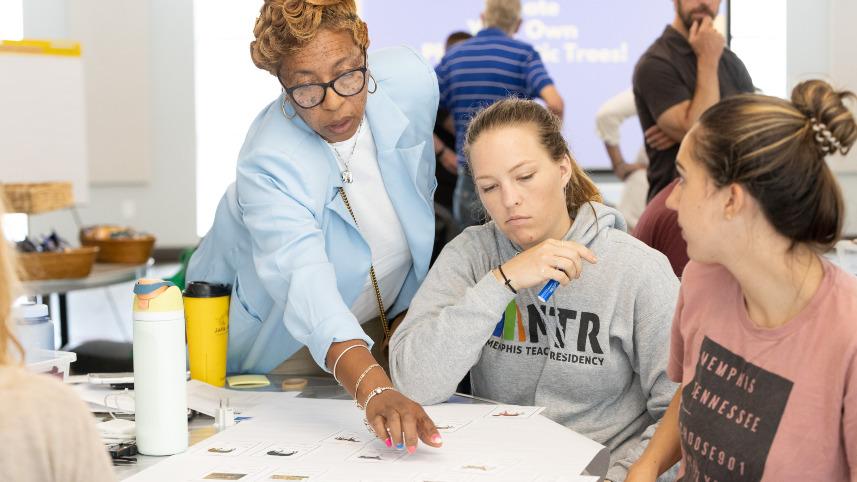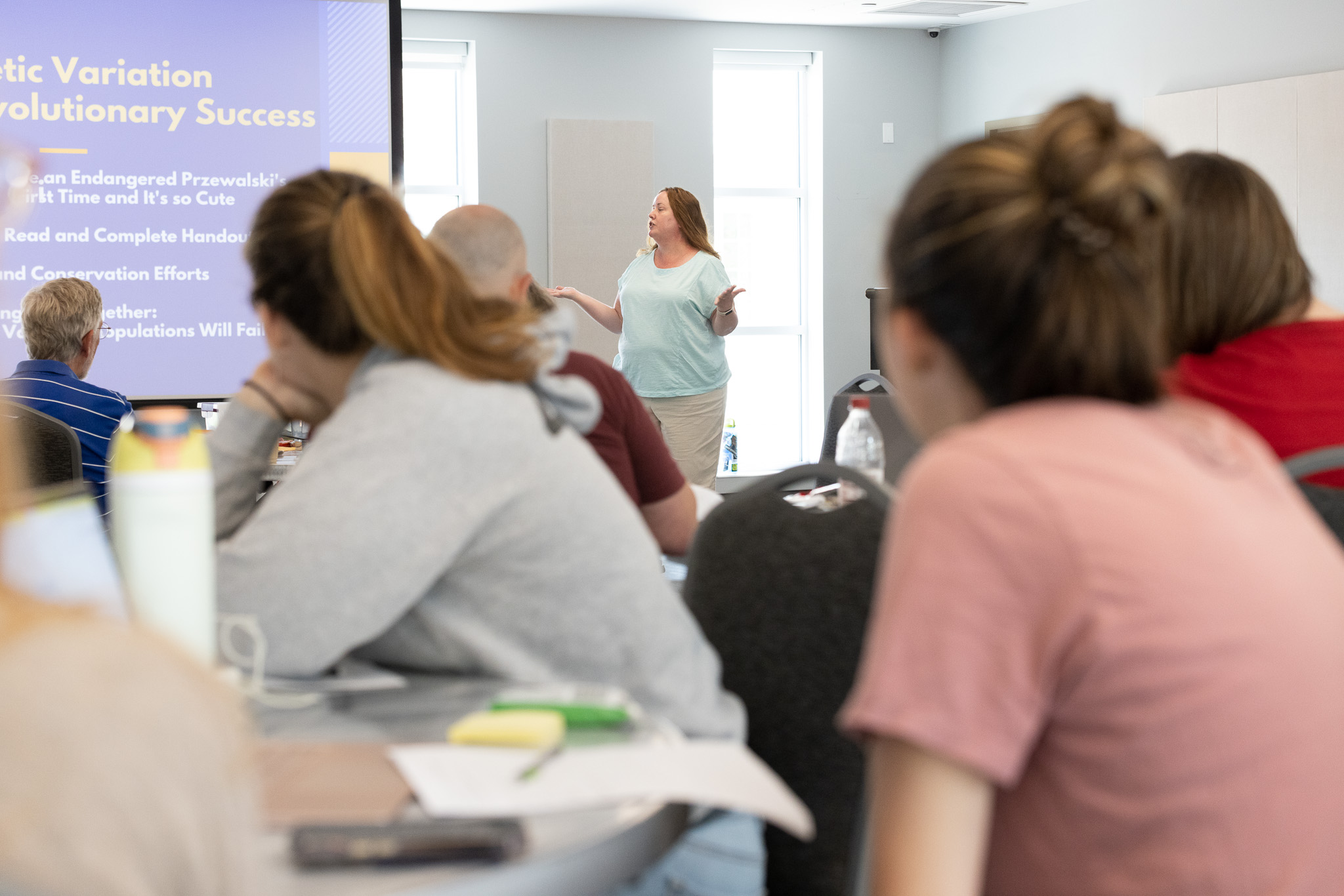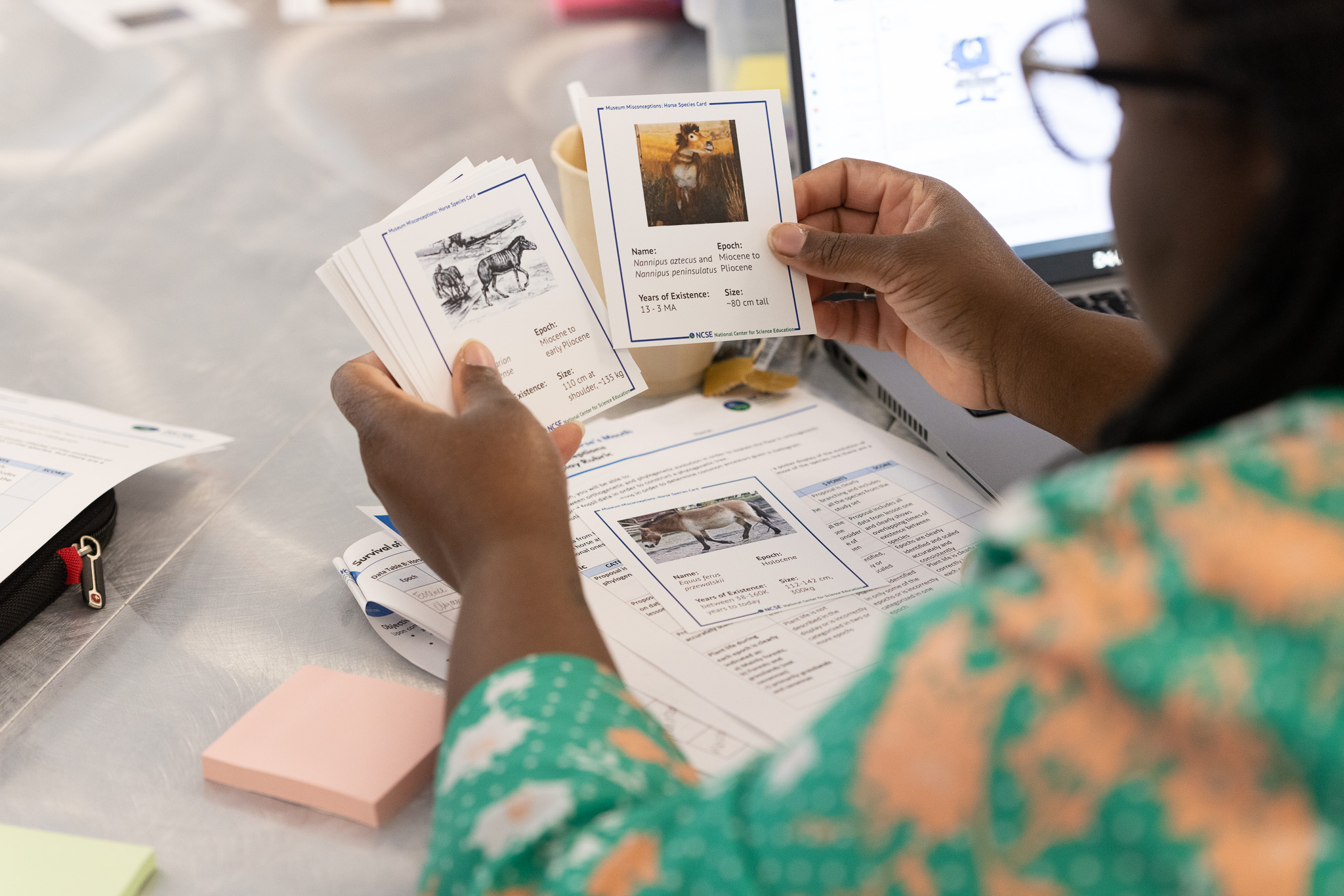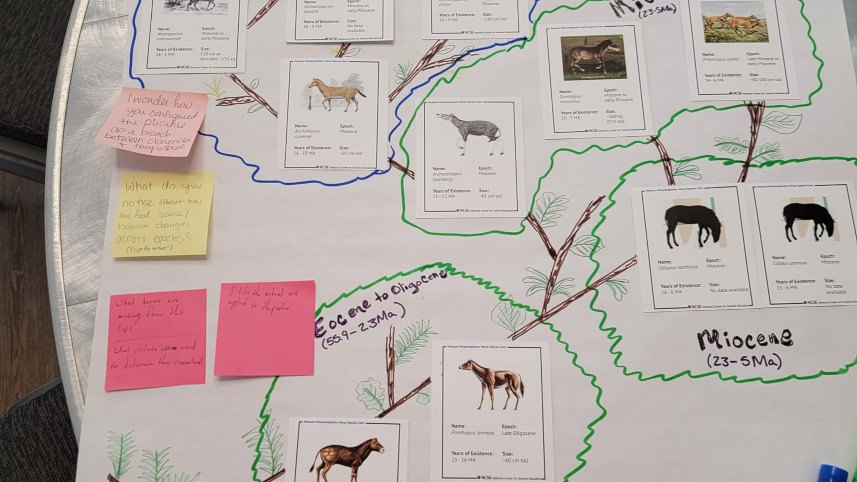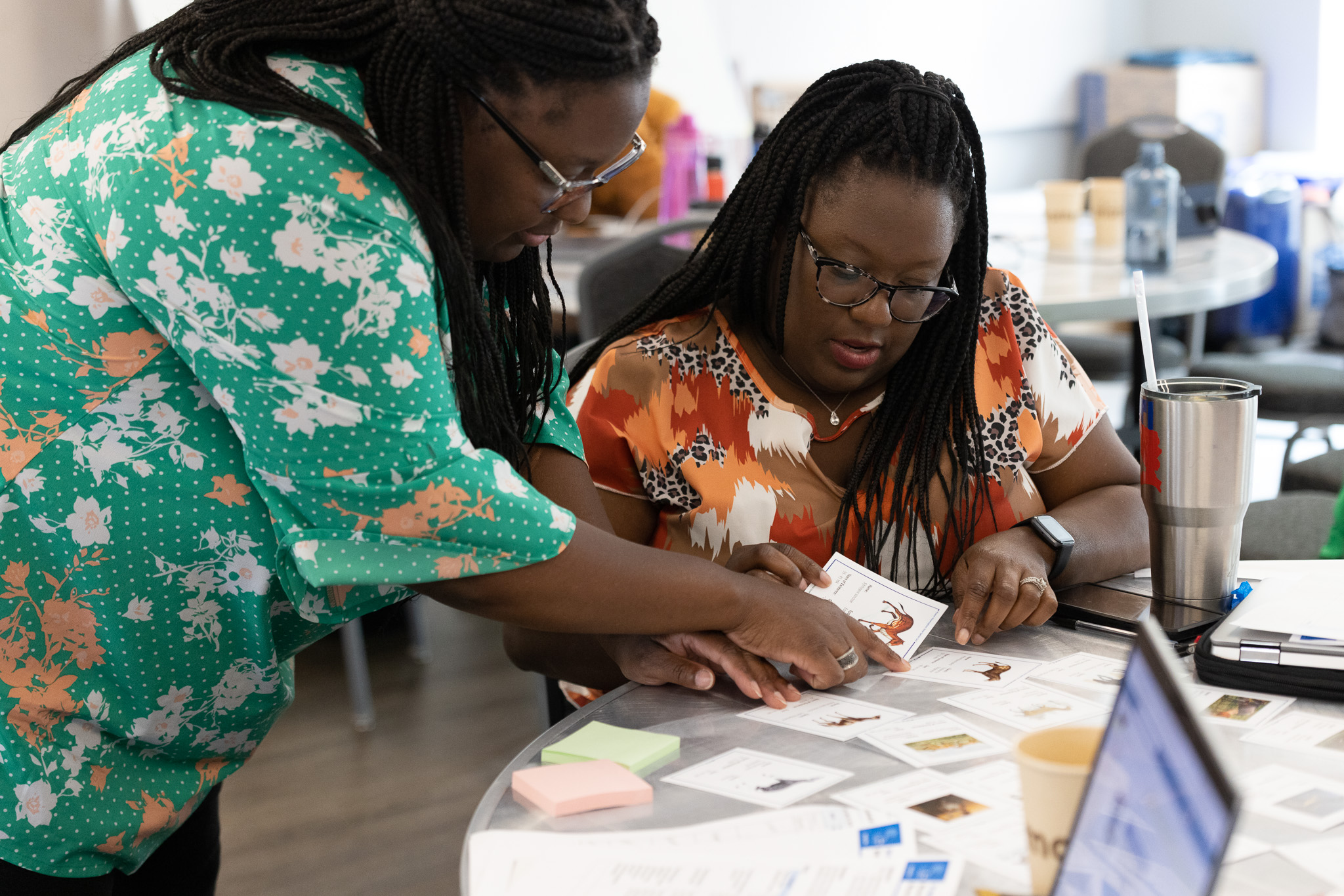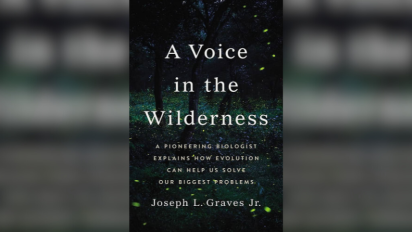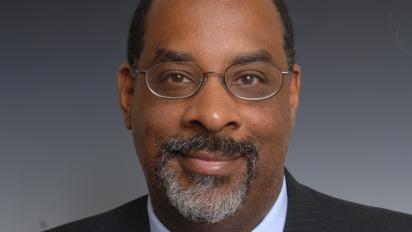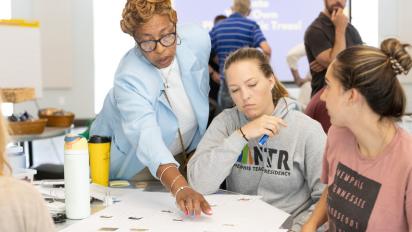The NCSE Supporting Teachers program recently held its second Leadership Academy in Nashville, Tennessee. Hosted by the Evolutionary Studies Institute at Vanderbilt University from June 19 to 22, 2023, and led by four NCSE staff, the primary goal of the event was to build our Teacher Ambassadors’ capacity to lead professional learning workshops in their regions of the country.
The 12 teacher ambassadors began with a deep dive into the research supporting NCSE’s approach to curriculum, pedagogy, and professional development, which helps teachers resolve student misconceptions about socially but not scientifically controversial topics such as evolution and climate change. “It was helpful to review NCSE’s vision and mission,” said NCSE Teacher Ambassador Alex Swavely, of Lancaster, Pennsylvania.
The teacher ambassadors then learned more about the Next Generation Science Standards (NGSS) and the NCSE approach to creating and implementing curriculum using phenomenon-based inquiry, a process called storylining. As well as examining case studies to investigate effective practices, the teacher ambassadors discussed challenges that teachers face when adopting and adapting NGSS-aligned curricula, and shared possible solutions.
The next day, the group took a field trip to the Coon Creek Science Center to hunt for fossils and learn about marine life in the Middle Tennessee region 70–75 million years ago. This expedition allowed the teacher ambassadors to get hands-on experience with fossil discovery and identification, which feature prominently in most of NCSE’s evolution lesson sets, in order to communicate these experiences to teachers and students.

